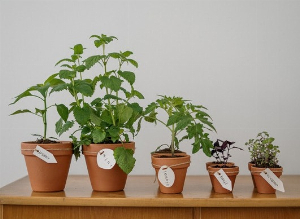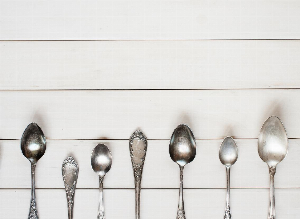Which herbs and plants can help relieve joint and muscle pain?
Published Sep 6, 2021 • By Candice Salomé
Arthritis, osteoarthritis, joint and muscle pain... Treatments for these conditions can often be overwhelming. However, plants and herbs can also serve as a natural alternative or complement to conventional treatments.
But which herbs and plants can help to ease muscle and joint pain? What are their benefits? How can they be used?
We explain it all in our article!

Joint conditions can often cause mechanical pain (acute pain) and limit movement. Analgesic and anti-inflammatory treatments are, for the most part, prescribed as the first therapeutic response, combined with lifestyle and dietary measures. Nevertheless, many plants and natural alternatives exist and can have beneficial effects on these pains.
Which herbs and plants can help against osteoarthritis?
Osteoarthritis is a disease which causes the wearing down of the protective tissue at the ends of bones (cartilage). It is most often manifests through pain and/or discomfort during movement in one or, more rarely, several joints.
Treatment for OA is based on the prevention and management of pain. This pain is treated with analgesics (painkillers), non-steroidal anti-inflammatory drugs (NSAIDs) or intra-articular injections of corticosteroids or hyaluronic acid.
However, many herbs can relieve the pain and inflammation associated with osteoarthritis.
Blackcurrant
Blackcurrant leaves and berries contain flavonoids and proanthocyanidols with anti-inflammatory properties.
In addition, blackcurrant seed oil is rich in essential fatty acids of the omega-3 and omega-6 family, which also have anti-inflammatory properties.
White willow and meadowsweet
White willow bark contains tannins, salicylates (especially salicin) and flavonoids. In the body, salicin is converted into salicylic acid, which is an anti-inflammatory and analgesic substance. This substance is also present in meadowsweet.
Both plants can be taken as an infusion or as a dietary supplement.
Stinging nettle
While you certainly don't want to touch them, stinging nettle leaves are rich in minerals, caffeic and chlorogenic acids, sitosterol and flavonoids, which may be responsible for its anti-inflammatory properties.
Stinging nettle leaves can be eaten (sprinkled on salads for example) or consumed as an infusion.
Which herbs and plants can help against arthritis?
Arthritis often refers to a disease caused by inflammation of the joints. It is important to know that arthritis can appear in two forms: acute or chronic. Although generally benign, arthritis can, in time, have debilitating consequences.
First of all, whatever the type of arthritis you suffer from, it is important to talk to your doctor. He or she will then make a diagnosis and prescribe the appropriate treatment.
However, there are some herbs that can help reduce joint pain and improve your quality of life.
Aloe vera
Aloe vera is known for its many therapeutic properties.
For example, aloe vera gel is rich in nutrients and applying it via massage can help ease joint pain.
Eucalyptus
Eucalyptus leaves can be applied to the skin to treat pain caused by arthritis. Eucalyptus leaves contain tannins that are known to reduce inflammation and pain.
It is therefore recommended to apply hot compresses of eucalyptus directly to the painful joint to increase its virtues.
Ginger
Ginger has many anti-inflammatory properties. It can be consumed as an infusion or applied as a compress (as in the case of eucalyptus).
Green tea
Green tea has many properties, and its health benefits are well established. In fact, it is the most widely consumed tea in the world.
Green tea is known to help to reduce inflammation and can be consumed as an infusion or be applied locally with compresses.
Make sure, however, to ask your doctor before taking green tea supplements, as they can interact with pseudoephedrine, a common ingredient in cold and flu medicines.
Which herbs and plants can help against muscle pain?
Muscle pain is typically the result of infrequent or overuse of a muscle. It can be caused by a workout that is a little too intense, or by tension or stress that makes the muscle tight and painful.
These pains can be alleviated with natural muscle relaxants, made from plants or herbs, which relax the tense and painful muscle and thus limit cramps, aches or back pain.
Yarrow
Although it is little known, yarrow is one of the most effective natural muscle relaxants. It has many anti-inflammatory and relaxing properties. It can be used in the case of muscle trauma or injury such as contracture, upper and lower back pain and other cramps. It is also very effective in case of painful menstrual periods.
Yarrow can be used fresh or dried, in capsules or tablets, as a tincture or a liquid extract.
Chamomile
Chamomile is a very powerful antineuralgic, antispasmodic and neuromuscular relaxant. This plant is also used for its anti-inflammatory and antioxidant properties.
Chamomile can be applied locally as an oil to be massaged into the affected area or can be taken as an infusion, at a rate of 40 grams per liter of water. When infused, it should be left to steep for 10 minutes. It may take up to 3 to 4 drinks per day to obtain the desired effects.
Wintergreen essential oil
Wintergreen essential oil can be used to heat the painful area. It contains methyl salicylates, which have anti-inflammatory and relaxing properties.
It should be applied locally by mixing 10 drops of wintergreen essential oil with 10 ml of vegetable oil.
Conclusion
While many herbs and natural treatments have been used for centuries and are effective for some patients and conditions, they are not for everyone. Our bodies are all different and we may each react differently to different treatments, due to our genetic make-up or due to the medicines we may already be taking.
It is therefore essential that you consult your doctor before starting any herbal or natural treatment. In general, herbal treatments are not recommended for women who are pregnant or breastfeeding or for children under 7 years of age.
Sources:
- La phytothérapie dans le traitement de l’arthrose, Vidal
- Des plantes pour soulager vos douleurs articulaires, Allo Docteurs
- Quelles plantes pour vos articulations ?, Arkopharma
- Des traitements naturels contre les contractures musculaires, Reflex Ostéo
- 9 Herbs to Fight Arthritis Pain, Healthline
- Blackcurrant seed oil, Versus Arthritis
- Yarrow Herb, British Herbal Medicine Association
Comments
You will also like

Spoon theory: What is it and how can it help people living with chronic illness?
Apr 13, 2022 • 7 comments

What is the psychological impact of chronic pain? Carenity members share their experience!
May 27, 2021 • 8 comments

 Facebook
Facebook Twitter
Twitter
